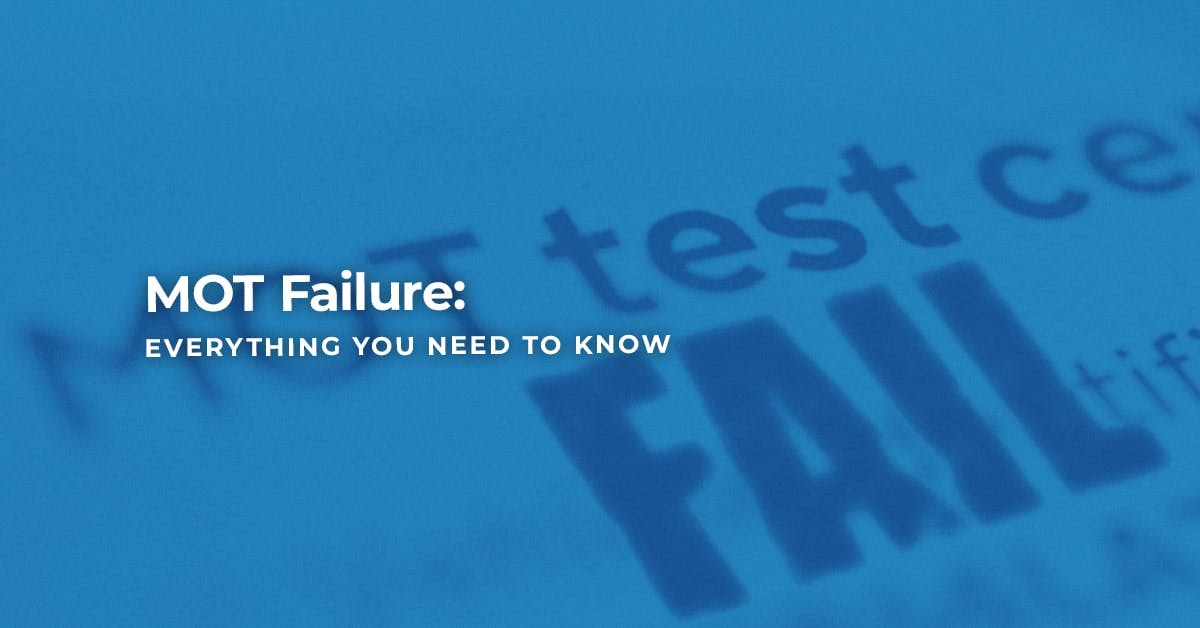With numerous vital components in near-constant use, it’s no wonder that vehicles often fail their MOTs.
The complex parts which make up your vehicle can experience gradual deterioration as they age, which is why regular servicing is so important in advance of an MOT test.
Read on and find out everything you need to know about MOT failure, including how to avoid it and how to appeal against a failed test.
Page Contents
What Happens If My Car Fails Its MOT?
You will always learn your MOT result as soon as the mechanic finishes the test.
If your car passes, the garage will fill out the VT20 pass form, sort out payment and send you on your way.
If your car fails its MOT, you will be issued with a ‘refusal’ of an MOT certificate VT30 form.
Your mechanic can then talk you through why your car failed its test.
Not sure what your rights are following a failed MOT? Take a look at our blog about UK driver rights regarding MOT failure.
How Can I Avoid MOT Failure?
Regular car servicing throughout the year is a must if you ever hope to avoid MOT failure.
As your test approaches, make sure you book a pre-MOT check to spot and fix any issues which could lead to a fail.
You may be surprised by the car issues that won't lead to a fail - like a broken car heater, for instance...
Want to avoid EV MOT failure? Check out our handy guide.
What are MOT Defect Categories?
There are four main types of faults: minor, major, dangerous and advisory.
Major and dangerous faults will lead to immediate MOT failure, whilst advisories and minor faults won’t lead to a fail.
Even so, these issues should be repaired as soon as possible.
Minor MOT Defects
Rest assured that your car can still pass the MOT with a minor defect. These problems need repairing but aren't serious enough to case an MOT failure.
These defects can be found on one or more components that have suffered slight damage, but are still working well.
Minor defects are not that common – any worn or damaged components are more likely to be classed as major defects, or as an advisory item.
Examples of minor defects include a rear registration plate lamp which isn’t working properly, or something which is obstructing the driver’s field of view.
You can easily avoid a minor defect by performing a pre-MOT check on your vehicle ahead of the test, which can save you time and money in the long run.
Major MOT Defects
Defects which are failure items but are not seen as dangerous are known as major defects.
Major MOT defects will cause an instant MOT fail, and you will not pass the test until these defects have been rectified.
Major defects include:
- A faulty shock absorber
- Exhaust system with a substantial fluid leak
- Windscreen wipers or washers not working properly
- Excessively worn brake pads
- An illuminated EML
Major faults pose an immediate safety risk, so it is important that you have these fixed right away.
Dangerous MOT Defects
The most serious of the failure notices, a dangerous defect will lead to an instant fail.
You will be unable to drive the car until the problem is repaired as the presence of a dangerous defect invalidates any remaining days on your current MOT certificate.
Dangerous defects that must be repaired right away include significantly worn brake pads or lining or a fractured wheel.
Your vehicle will not be roadworthy or safe to drive until you have these issues fixed.
Advisories
In addition to the MOT defect categories listed above, MOT testers can declare faults as advisories if they believe that a fault may soon become apparent.
Whilst an MOT tester does not have to tell you about any advisories, a good MOT tester will.
Your vehicle will still pass the MOT with these potential defects, but we'd recommend rectifying the issue as soon as possible as you may fail a future MOT test if you don't.
A worn shock absorber bushing or a worn tyre with around 1.6mm tread depth – the minimum limit – are examples of advisories.

What Should I Do About MOT Failure?
If your car fails its MOT, you can leave it at the test centre for essential repairs to be carried out.
Provided these repairs are done within 10 working days of the test, the car can be MOT retested free of charge.
In the event you want your vehicle to be repaired somewhere else, then you can still have it retested for free at the original test centre so long as you return it before the end of the next working day.
Please know that you may only take the car elsewhere if its current MOT certificate is valid, and the MOT test did not highlight a dangerous defect.
Can I Appeal Against a Failed MOT Test?
If your vehicle has a failed MOT, then you need to discuss your results with the test centre before any repairs can be carried out.
You can appeal the result of the MOT if you think it is wrong by filling in the complaint form and sending it to the DVSA within 14 working days of the test.
The DVSA will contact you within 5 days to discuss the appeal.
In the event the DVSA are happy to recheck your vehicle, you will need to arrange a date and pay the full test fee again.
If your appeal is successful, then you will be refunded the test fee.
You should only begin this process if you are convinced that your car should have passed its original test.
If the independent tester feels the failure was justified, you’ll have to pay for repairs, the original test and potentially two MOT retest fees.









4 replies to "MOT Failure: Everything You Need to Know"
Alex florenzi
January 17th, 2023
Drew Hickman
January 20th, 2023
Keith Tink
July 26th, 2023
Eve McPherson
July 26th, 2023
Leave a comment